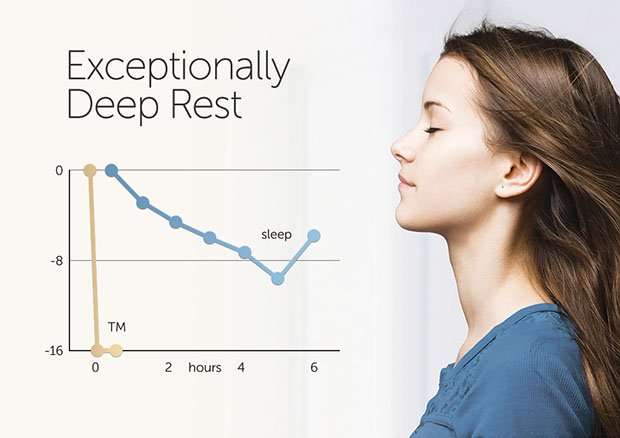Can meditation slow down aging
and help you live longer?

Responding to an article published in Air Force Times titled “War might make young bodies old”, David Leffler, Ph.D., and Dr. Robert Schneider wrote a letter to the editor. It was printed in the magazine’s 15.10.2012 issue.
In their letter, “TM can slow the aging effect”, Leffler and Schneider refer to some of the most noteworthy scientific research on how to blunt the edge of aging. Studies published in peer-reviewed journals show that practitioners of Transcendental Meditation enjoy longer lives than non-meditating controls. And not only is longevity enhanced—practitioners lead also a fuller, more vigorous life as their neurophysiological aging processes are considerably delayed.
Read the full letter.
TM CAN SLOW THE AGING EFFECT
Neurophysiologist Regina McGlinchey was quoted saying that because of the stress of long and repeated deployments by our military, “We’re looking at people who are going to be having cognitive problems much earlier than they should be having them” [“War might be making young bodies old,” Sept. 24]. Is it possible to help these warriors and to prevent the many stress-related problems that appear to be accelerating the aging process in our highly stressed personnel?
Modern medicine has discovered that the declines commonly seen in cognitive functioning, mental functioning and physical health as people age are not inevitable. Indeed, it is possible to age successfully and to maintain better-than-average functioning. Yet, very few interventions have been shown to slow biological aging and increase the likelihood of successful aging. The most prominent intervention is a mind-body technique, the Transcendental Meditation program, which has been shown to reverse many of the physiological and neurophysiological changes associated with aging.
In a 1982 study published in the International Journal of Neuroscience, older TM practitioners were compared to controls. The findings revealed that older TM practitioners who had practiced the TM technique for over five years had biological ages 12 years younger than controls.
Research conducted at Harvard University and published in 1989 in the Journal of Personality and Social Psychology showed that elderly individuals who practiced TM lived significantly longer than controls who participated in other interventions. This finding is quite remarkable: It signifies that TM practice profoundly affects the neurophysiological and physiological basis of the aging process, resulting in a slowing and even reversal of the aging process, as well as enhanced longevity.
A study published in Military Medicine shows that Iraq and Afghanistan veterans experienced a 50 percent drop in PTSD symptoms in just four weeks.
Research has also shown that regular TM practice decreases most of the major risk factors for heart disease and stroke, including hypertension, anxiety and depression.
Due to the positive results of the extensive scientific research conducted on the TM program, retired Rear Adm. Richard W. Schneider, president of Norwich University, the nation’s oldest private military college, implemented the TM technique at Norwich as a preventive measure and to increase the performance of his cadets.
He concludes that “we owe it to them to give them the very best tools to win, and I think this is one of those tools.”
David Leffler, Ph.D.
Center for Advanced Military Science
Dr. Robert Schneider, FACC
Institute for Natural Medicine and Prevention
Fairfield, Iowa
















